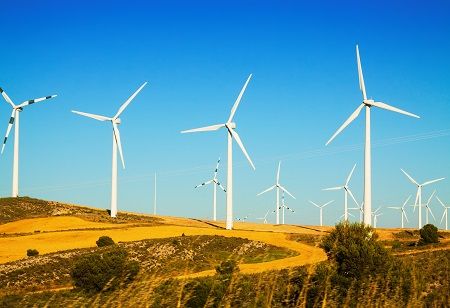
India Eyes Energy Independence by 2047 & Net-Zero by 2070: Puri
- India targets energy independence by 2047 and net-zero by 2070 with expanded oil exploration.
- Oil imports are diversifying and refining capacity is set to grow.
- Biofuels and LPG access are scaling through major clean energy initiatives.
At the 9th OPEC International Seminar in Vienna, India outlined its ambitious plan to ensure energy security and sustainability. Minister of Petroleum and Natural Gas, Hardeep Singh Puri, speaking on the theme 'Oil Markets: Energy Security, Growth & Prosperity', stated that India has two goals: achieve complete energy independence by 2047, and net zero by 2070.
The Minister highlighted plans to grow hydrocarbon exploration under the Open Acreage Licensing Policy (OALP) and to increase the area explored from its current level of 2.5 lakh sq km to 1 million sq km by 2030.
He stated, "India will contribute nearly 25% of the incremental global energy demand growth in the coming years". The Minister also discussed the promise the Andaman Sea holds for a Guyana-sized oilfield and the potential for a sea change in India's upstream sector. "India is the only major economy to reduce fuel prices even as global oil prices rose", the minister added.
Hardeep Singh mentioned the changes such as changes to a Revenue Sharing Model under the Hydrocarbon Exploration and Licensing Policy (HELP), and amendments to the Oilfields Act to strengthen governance. And, almost 99% of the 'No-Go' zones have been opened for exploration using data interventions like the National Seismic Program and Mission Anveshan.
Also Read: India's Energy Storage to Grow With 15,800 MW BESS Projects
"India firmly believes the global energy transition must be just, inclusive and equitable. For 1.4 billion Indians and billions across the Global South, development must go hand in hand with dignity", he noted.
India, the third largest energy consumer in the world, is diversifying its crude oil imports from 27 to 40 countries while expanding its refining capacity to 310 MMTPA by 2028. The goal is for a $300 billion petrochemical sector by 2030.
With respect to clean energy, India is promoting biofuels through the Global Biofuels Alliance, which comprises 29 countries. Domestic production and consumption of ethanol, CBG, biodiesel, and SAF are increasing.
The Pradhan Mantri Ujjwala Yojana has provided more than 103 million LPG connections, ensuring to provide a nearly universal level of access to a clean cooking space with continued affordability for consumers through subsidies and price support.

.jpg)